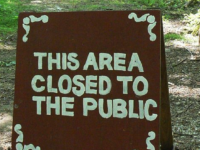The Canadian government plans to regulate the use of artificial intelligence in search results and when used to prioritize the display of content on search engines and social media services. AI is widely used by both search and social media for a range of purpose that do not involve ChatGPT-style generative AI. For example, Google has identified multiple ways that it uses AI to generate search results, provide translation, and other features, while TikTok uses AI to identify the interests of its users through recommendation engines. The regulation plans are revealed in a letter from ISED Minister François-Philippe Champagne to the Industry committee studying Bill C-27, the privacy reform and AI regulation bill. The government is refusing to disclose the actual text of planned amendments to the bill.
Search Results for "c-11" : 409
Canadian Heritage Minister Pascale St-Onge’s Internet Regulation Misinformation Problem
The temperature over the government’s Internet legislation has increased this week as many Canadians wake up to the consequences of Bills C-11 and C-18. CRTC regulations on mandated registration requirements arising from the Online Streaming Act and the possibility that Google will follow Meta’s lead and remove news links for search results in Canada due to the Online News Act have placed the spotlight on harmful effects of the government’s approach. In response, Canadian Heritage Minister Pascale St-Onge has become more vocal on both social media and mainstream media in defence of the government’s approach. Unfortunately, her comments included repeated errors (suggesting that independent media has not reached any deals with Internet platforms which is not remotely accurate), maligned digital creators (saying that Bill C-11 wasn’t about them), were contradicted by the CRTC, or featured outright misinformation. I posted a pair of threads fact-checking the Minister, which are posted below. There can obviously be different views on the Internet regulation, but the Minister ought to know her file and stick to the facts.
Limiting Public Participation: Why No One Should Be Surprised at the CRTC’s Internet Services Registration Requirement Ruling
The CRTC’s decision to require registration for a wide range of Internet sites and services that meet a $10 million revenue threshold, including podcasters, adult sites, and news sites, appears to have taken many Canadians by surprise. For anyone who closely followed Bill C-11, this was entirely expected given that the bill adopts an approach in which all audio and video content anywhere in the world is subject to Canada’s Broadcasting Act. I listed many of the sites that are now caught by the regulations back in 2021 based on an internal Heritage memo that identified many that no one would reasonably describe as web giants. In other words, this isn’t an outlier. Rather, it is how the government crafted the law with a “regulate everything” default and the expectation that the CRTC would establish some exemptions. But even if most Canadians were only vaguely aware of the exceptionally broad scope of Bill C-11, they might still have missed the regulatory process that led the CRTC to establish the $10 million threshold and acknowledge that this is the first step in a bigger regulatory plan. That is because the Commission intentionally limited public participation and rejected efforts to extend the timeline for submissions on the grounds that the issue was “industry focused and relatively narrow in scope.”
What the CRTC’s New Registration Requirements Mean for Regulating Everything from Online News Services to Podcast Providers
The CRTC last week released the first two of what is likely to become at least a dozen decisions involving the Online Streaming Act (aka Bill C-11). The decision, which attracted considerable commentary over the weekend, involves mandatory registration rules for audio and visual services that include far more than the large streaming services. The Commission says the registrations would give it “de minimis information about online undertakings and their activities in Canada, which would give the Commission an initial understanding of the Canadian online broadcasting landscape and would allow it to communicate with online undertakings.” By contrast, the inclusion of registration requirements for a wide range of undertakings, including some podcast services, online news sites, adult content sites, and social media left some characterizing it as a podcast registry or part of “one of the world’s most repressive online censorship schemes.” So what’s the reality? As is often the case, it is not as bad as critics would suggest, but not nearly as benign as the CRTC would have you believe.
The Law Bytes Podcast, Episode 179: Peter Menzies on Why the CRTC Feels Broken Right Now
Last week, the CRTC issued the first two of what are likely to be at least a dozen decisions involving the Online Streaming Act. Those decisions are already sparking controversy, but as the Commission focuses on Bill C-11 and perhaps soon Bill C-18, there is mounting concern that its other responsibilities are falling by the wayside that its independence from the government is starting to show cracks. Peter Menzies is a former Vice-Chair of the CRTC and frequently commentator on broadcast, telecom and Internet regulatory issues. He joins the Law Bytes podcast to talk about the current state of the Commission, which has never seemed more important but also seemed more out of touch and incapable of meeting its duties.











